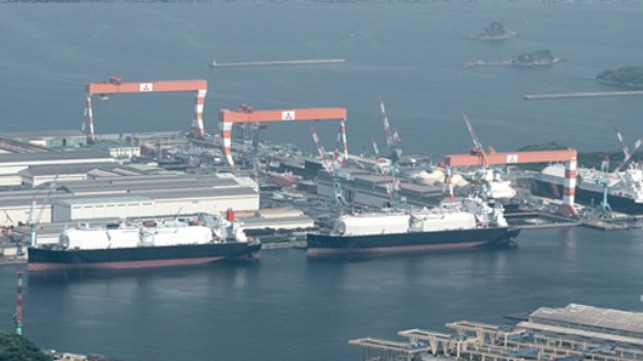Mitsubishi Heavy Industries Looks Into Decarbonizing Existing Ships

Mitsubishi Heavy Industries (MHI) has launched a new project with the Mærsk Mc-Kinney Møller Center for Zero Carbon Shipping to assess the technical, financial and environmental factors for modifying existing ships to run on zero-carbon fuels. By creating a plan for converting existing fossil-fueled vessels into carbon-neutral ships, the project aims to reduce investment risk for the decarbonization transition.
The project will include a technical assessment of the safety aspects for converting bulkers, tankers and boxships to run on ammonia, methanol and other decarbonized fuels. MHI will also look into the expenses required, including fuel conversion costs, technology investments, fuel costs and related shipping costs. In parallel, an environmental assessment will be conducted to estimate the benefits from reducing greenhouse gas (GHG) emissions over an existing ship’s lifetime. MHI's partners in the project include A.P. Møller - Mærsk, ABS, MAN, NYK, Seaspan Corporation and Total.
It is the shipbuilder's second decarbonization announcement in a matter of weeks. Last month, MHI announced its participation in a related Mærsk Mc-Kinney Møller Center study on guidelines for the safe use of ammonia as a marine fuel, in partnership with LR.
In a sign of the cross-sector demand for green energy resources, the MHI subsidiary Mitsubishi Power is developing a 40 megawatt turbine generator that can run on pure ammonia - the "first commercialized gas turbine to make exclusive use of ammonia as a fuel in a system of this scale." MHI absorbed Mitsubishi Power into its corporate structure earlier this year in order to leverage both firms' resources for the decarbonization drive.
